Share
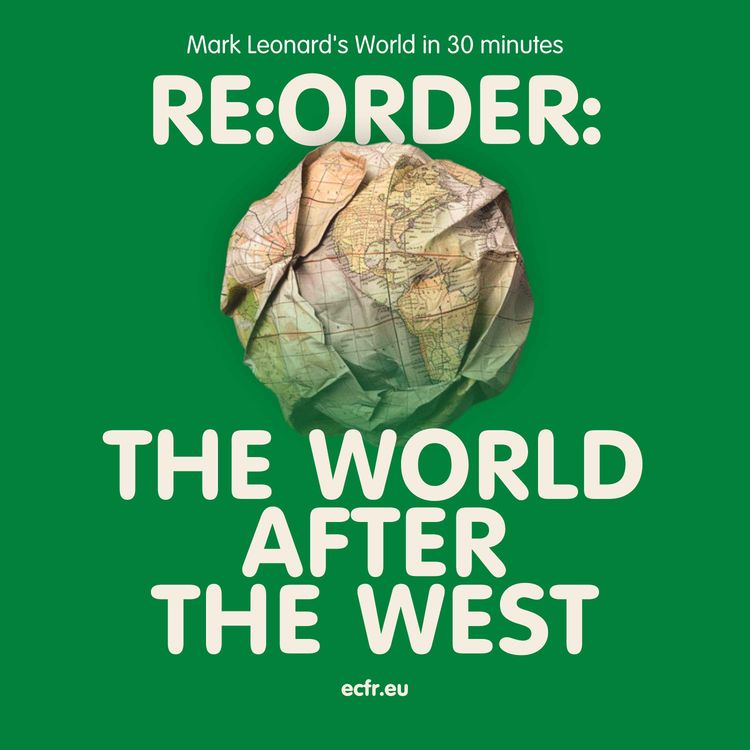
Mark Leonard's World in 30 Minutes
The world after the West: Sasha Gabuev and Mikhail Komin on Russia’s role in international organisations
Russia is influential in international organisations: a permanent member of the UN Security Council, it also participates in geoeconomic groups such as the G20, and BRICS+. Regionally, Russia leads the Eurasian Economic Union, and the Collective Security Treaty Organization. But relations with Western organisations such as NATO and the EU are strained, and the G8 suspended Russia as a member following its invasion of Ukraine.
This week, Mark Leonard welcomes Sasha Gabuev, an expert on China and Russia, and director of the Carnegie Russia Eurasia Center, and Mikhail Komin, ECFR visiting fellow, and expert on authoritarian regimes, and Russian elites and bureaucracy. They discuss Russia’s motives for joining these organisations, and the impact on the West. Which international institutions is Russia most excited about? Does its membership present a threat to the West? And how can these multinational unions benefit Moscow?
This episode was recorded on 7 August 2024.
This podcast is part of Re:Order and was produced with support from Stiftung Mercator
More episodes
View all episodes
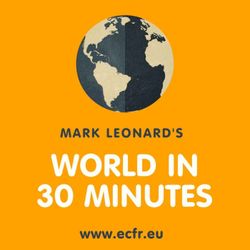
Live from Davos with Alexander Stubb
25:32|In this episode, Mark Leonard sits down with Finnish president, Alexander Stubb, in Davos for a conversation about Donald Trump’s view of Ukraine, Greenland, the world and Europe’s place in it. They explore the clash between advocates of multipolarity and those resisting it, and how this battle is reshaping global power. Together, they reflect on the shifting idea of the West and the challenge of preserving a pragmatic, values based transatlantic relationship. They also explore Finland’s place in this rapidly evolving landscape including the impact of Trump’s sights on Greenland and the war in Ukraine. Bookshelf Peacemaker: U Thant and the Forgotten Quest for a Just World by Thant Myint-U The Triangle of Power: Rebalancing the New World Order by Alex Stubb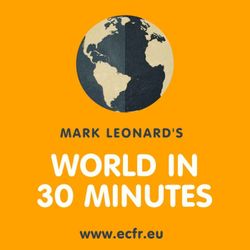
Will Trump bomb Iran?
35:49|Protests across Iran have entered their third week and Donald Trump is said to be considering a military intervention against the Khamenei regime. According to human rights organisations, its brutal crackdown against demonstrators has led to at least 2,500 deaths, as well as an internet blackout and mass arrests. This week, Mark Leonard welcomes Ellie Geranmayeh, deputy director of ECFR’s Middle East and North Africa programme, to discuss the Iranian protests, what a military intervention by Trump could look like and how Iranians are reacting to the political turmoil.Could Trump feasibly intervene in Iran? What are his options? How do the current protests differ from those staged after the death of Jina Mahsa Amini? What role could Reza Pahlavi, son of the deposed Mohammad Reza Pahlavi, play in a potential regime change? And how does Iran’s nuclear programme fit into all of this?This podcast was recorded on Thursday 15, January 2026.Bookshelf It Was Just an Accident by Jafar PanahiTaraneh: A Documentary by BBC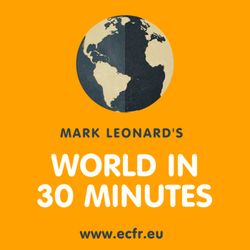
The world in 2026
27:40|Following on from January 2nd’s prediction episode, Mark Leonard hosts Julien Barnes-Dacey, ECFR’s Middle East programme director, Alex Vines, ECFR’s Africa programme director, Andrew Small, ECFR’s Asia programme director, and Jana Kobzová, co-director of ECFR’s European Security programme, to discuss what challenges Europe should focus on in 2026. How will global politics shift in 2026? Will we finally see an end to the war in Ukraine? How are the ongoing protests in Iran affecting the likelihood of an Israeli attack? What’s next for the Gaza peace deal? What are the major points of conflict that will shape Africa this year? And will Europeans finally confront China’s growing influence? BookshelfThe War Came to Us: Life and Death in Ukraine by Christopher MillerIndignity: A Life Reimagined by Lea YpiTransformed by the People: Hayat Tahrir al-Sham’s Road to Power in Syria by Patrick Haenni and Jerome DrevonSahel: The Perfect Storm by Morten BøåsChina’s Economy: Rightsizing 2025, Looking Ahead to 2026 by Daniel H. Rosen, Logan Wright, Oliver Melton and Jeremy Smith (Rhodium Group) This podcast was recorded on January 8th 2026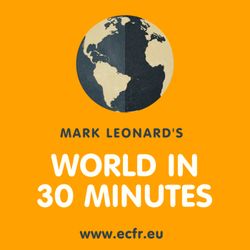
Trump attacks Venzuela
35:31|On January 3rd, the US military struck Venezuela and captured its president, Nicolás Maduro. Trump has declared that America will now “run” the country, shifting from a narrative which had focused on the US fighting a war against drug traffickers to a narrative which sees the US assert control over Venezuela’s massive oil reserves. Mark Leonard is joined by Jeremy Shapiro, ECFR research director, and Nacho Torreblanca, ECFR distinguished policy fellow, to discuss why America decided to capture Maduro and what this could mean for the domestic situation in Venezuela—as well as its wider implications for other areas, including Greenland. What were Trump’s motivations? Will the US increasingly use military force to secure resources and territory across the Americas and the north Atlantic? And could Greenland be next? Bookshelf Morir en la arena (To Die in the Sand) by Leonardo PaduraThe Revolutionary Temper: Paris, 1748-1789 by Robert Darnton This podcast was recorded on January 5th 2026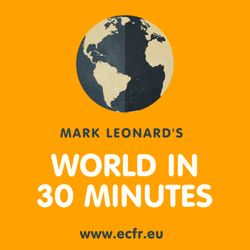
Predictions and Reckonings: From 2025 to 2026
23:16|This week Mark Leonard is joined by Jeremy Shapiro, research director at ECFR, for their annual end-of-year tradition: marking last year’s predictions and making ten bold forecasts for the year ahead. They look at how their 2025 calls stacked up—from Trump to German politics to Ukraine, China and migration—before turning their attention to 2026. Will the European far right continue its advance? Is an uneasy ceasefire in Ukraine finally within reach? How might US policy on Iran, China and Europe evolve under Trump? And what role will AI, energy security and debt crises play in shaping the year to come? This podcast was recorded on December 30th 2025. BookshelfThe Dream Factory: London’s First Playhouse and the Making of William Shakespeare by Daniel Swift Ones and Tooze by Adam Tooze Wer verteidigt Europa?: Die neuen Kriegsgefahren und was wir tun müssen, um uns zu schützen by Jana PuglierinSurviving Chaos: Geopolitics when the rules fail by Mark Leonard (April 2026)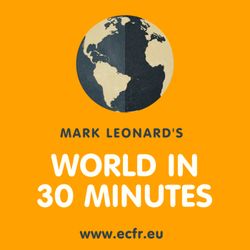
Made in China: How Europe can tackle economic coercion
35:22|China’s tightening of export controls on rare earths and related technologies across 2025 marked a turning point in Europe’s economic security. Even with Beijing’s partial and momentary rollback after talks with Washington, a Damocles sword still hangs over Europe’s industrial base—from defence to semiconductors and clean tech. And with China’s upcoming 15th Five-Year Plan and Made in China 2035, Europe faces the triple threat of coercion, industrial corrosion and loss of sensitive business intelligence. This week, Mark Leonard welcomes Tobias Gehrke, senior policy fellow at ECFR covering economic security and European economic strategy, and Andrew Small, the new director of the ECFR’s Asia programme. Together, they discuss China’s current and future economic strategies—and actions that Europe should take in response. How seriously should Europeans take the threat of Chinese coercion? In which industries can Europe realistically compete with Beijing? And where are Europe’s potential partners in Asia, Africa and Latin America for alternative supply chains? This episode was recorded on December 15 2025 Bookshelf Material World: The Six Raw Materials That Shape Modern Civilization by Ed Conway The Reckoning by David Halberstam “Isch vorbei” by Süddeutsche Zeitung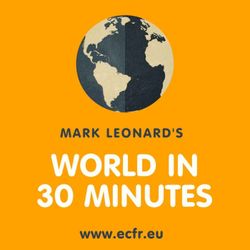
After Doha: What’s next for the Arab world?
26:50|This week, Mark Leonard welcomes Ellie Geranmayeh, senior policy fellow and deputy head of ECFR’s Middle East and North Africa programme, and Hugh Lovatt, senior policy fellow with ECFR’s MENA programme and chairman of the Brussels-based European Middle East Project (EuMEP). Together, they discuss Ellie’s and Hugh’s experiences at the Doha Forum: from Gaza’s fragile future and Iran’s nuclear conundrum, to America’s role as a security guarantor in the Middle East—especially for Iran’s nuclear deal. Will America still be considered as the security guarantor in the Arab world, or is Trump still interested in the Iran nuclear compromise? Will the outcome of a future Israeli election fundamentally change the country's foreign policy? And who holds the real power in Gaza’s future governance—the international community, or Palestinians themselves? This episode was recorded on December 10th 2025 Bookshelf:The Caravan: Abdallah Azzam and the Rise of Global Jihad by Thomas Hegghammer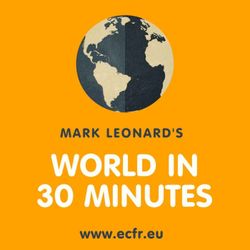
Trump’s new National Security Strategy
45:38|America has published its new National Security Strategy (NSS)—and it contains worrying rhetoric about the EU, European values and the transatlantic relationship. Russia, however, is never described as a threat or competitor. In fact, Moscow has welcomed the document as being “largely consistent with Russia’s vision”.In this week’s episode, Mark Leonard welcomes Gladden Pappin, president of the Hungarian Institute of International Affairs, co-founder and deputy editor of American Affairs journal, and co-founder of the online magazine Postliberal Order, and Majda Ruge, senior policy fellow in ECFR’s US programme and long-time observer of the American right’s foreign policy. Together, they break down what’s behind the NSS and what its real impact on Europe might be.What are the NSS’s ideological roots? How seriously should Europeans take the strategy and possible threats coming from the US? And what does the NSS mean for the future of the transatlantic relationship? Bookshelf:Reading Trump’s National Security Strategy: Europe through a distorted lens by Carl BildtIt’s time Europe got to grips with the MAGA challenge, writes Mark Leonard by Mark LeonardEuropeans can’t let Trump define what it means to be European by Pawel ZerkaThis episode was recorded on December 11th 2025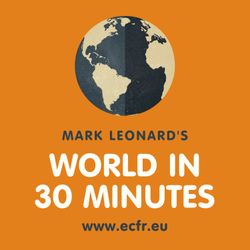
China's technological dominance
30:26|China’s rise has long fascinated policymakers, economists and technologists. But few observers have studied the country’s technological ambitions as closely as Dan Wang, research fellow at the Hoover History Lab at Stanford University and author of Breakneck: China’s Quest to Engineer the Future.This week, Mark welcomes Dan to discuss the ideas behind his book, including the dichotomy between China’s “engineering state" and the West’s “lawyerly” societies. Together, they unpack what China is getting right—and where its model is lagging.What is the Chinese government getting wrong? Is the Chinese model now coming under strain? What would it take for Europe to remain competitive in the 21st century? And how is China projecting its model across Africa and South-East Asia?Bookshelf: Breakneck: China's Quest to Engineer the Future by Dan Wang Allies at War: How the Struggles Between the Allied Powers Shaped the War and the World by Tim Bouverie This episode was recorded on November 21st 2025